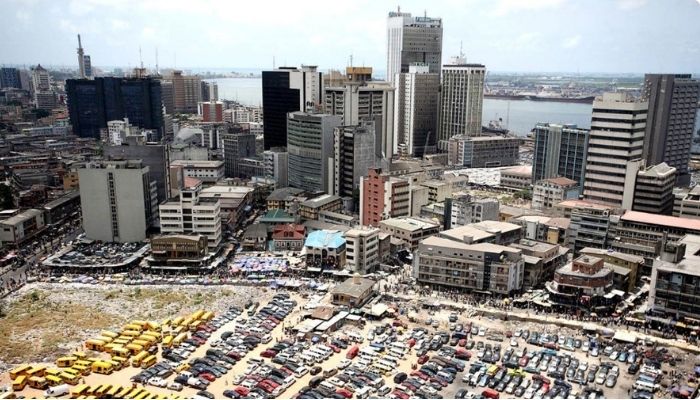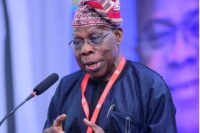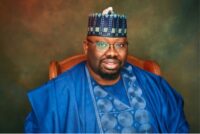…Experts seek clear timelines to fix trade barriers, drive growth
By Chinwendu Obienyi
Nigeria’s ambition to grow its economy to $1 trillion by 2030 is facing renewed scrutiny as analysts warn that the country’s growing trade surplus may be masking deeper structural weaknesses, particularly its over-dependence on crude oil exports and rising reliance on imports.
Data from the National Bureau of Statistics (NBS) showed that Nigeria recorded a trade surplus of N5.17 trillion in the first quarter (Q1) of 2025, representing a 51.07 per cent increase from the N3.42 trillion reported in Q4 2024.
The development signaled a strong positive contribution to the country’s current account and external reserves, buoyed largely by robust oil receipts.
According to the data, exports remained the engine of trade performance, accounting for 57.18 per cent of total trade at N20.60 trillion. Crude oil retained its status as the top export item, generating N12.96 trillion or 62.89 per cent of total exports.
However, there was a mild year-on-year contraction of 16.35 per cent in crude oil exports due to softer global prices and shipping disruptions.
Similarly, manufactured exports dropped sharply by 40.43 per cent from Q4 2024 to N294.43 billion, underlining the country’s weak industrial capacity and global competitiveness.
Also, agricultural goods imports rose 12.52 per cent YoY to N1.04 trillion, driven by wheat and soybean purchases. Raw material imports expanded by 23.42 per cent to N1.81 trillion, pointing to continued demand by local manufacturing and agro-processing firms.
Notably, the value of manufactured imports hit N7.51 trillion, reflecting a 30.90 per cent YoY jump, a worrying sign for Nigeria’s local manufacturing aspirations and import-substitution goals.
In contrast, non-crude oil exports which include agricultural goods and manufactured products—contributed N7.64 trillion (37.11 per cent), a strong indicator of the government’s ongoing diversification efforts.
Reacting to the data, economic experts say the surplus paints an incomplete picture of Nigeria’s trade health. They argue that while the headline figures are encouraging, the underlying performance reveals long-standing issues, including weak non-oil exports, declining manufactured goods output and growing import dependence.
The Group Managing Director of Cowry Asset Management, Johnson Chukwu, who spoke to Daily Sun, said that although the N5.17 trillion surplus is good for the country’s external buffers, but going through the breakdown of the data, the structural imbalance becomes evident.
“We are still overly dependent on crude oil which remains vulnerable to global price volatility and energy transition trends. Non-oil exports are not growing fast enough to fill the gap, and our manufactured exports are actually declining. So, these trends threaten Nigeria’s long-term economic resilience and undermine the credibility of its $1 trillion GDP target”, Chukwu said.
He stressed that unless deliberate policy action is taken, the country risks repeating cycles of short-term gains followed by long-term setbacks.
“Policymakers must shift focus to structural reforms that improve trade logistics, power infrastructure, and local value chain development. You cannot grow a sustainable economy when your manufacturing base is weak and your logistics ecosystem discourages competitiveness”, Chukwu said.
Despite recent reforms by the federal government including fuel subsidy removal, foreign exchange unification, and tax system overhaul, he insists that investors and exporters alike are demanding more than policy statements.
“Beyond legislation, implementation is key. Investors want clarity and predictability. They are looking for measurable time-frames—when will electricity supply improve? When will our ports be decongested? When will roads and rail lines reduce logistics costs? These are the questions that need answers.
Foreign direct investors are long-term, discerning players. They don’t make decisions based solely on headline reforms or credit ratings. They look at a matrix of factors: the legal framework, enforceability of contracts, exchange rate stability, macroeconomic growth trajectory, security conditions, and ease of doing business. They also weigh the quality of local labour and overall governance effectiveness. Hence, they are growing more cautious as Nigeria’s macroeconomic environment remains fraught with uncertainty.
Issues such as insecurity, inconsistent policy application, weak contract enforcement, and multiple taxation continue to dampen investor sentiment, even as the country pursues its trillion-dollar ambition”, Chukwu, lamented.
He added that investor risk tolerance depends on clearly defined risk acceptance criteria. “When basic boxes such as security, legal protections, and infrastructure remain unticked, capital inflows will stay hesitant”, he stated.
Head, Research at FSL Securities, Chiazor Victor, while commending the modest growth in agricultural and raw material exports, cautioned that it must be accompanied by deeper industrial development to boost value-added exports.
“Nigeria’s trade future must not rely on raw materials alone. We must move up the value chain and begin exporting finished goods at scale. That is the only path to sustainable trade growth and economic diversification”, he said.

















Leave a comment